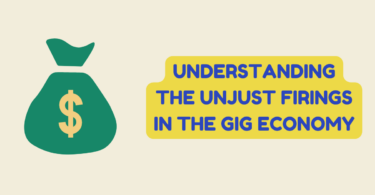
Is Your Start-Up Ready? Legal Requirements For Opening An Online Business
You can start a complete e-commerce shop with $1,000 or as little as $100 if you’re willing to use free resources, based on statistics on BigCommerce. Launching e-commerce sites has become a popular way for individuals to earn income via the internet. Unlike brick and mortar stores, setting up an online business is easy and cheap. However, that doesn’t mean you can create a website and start selling online. Whether you’re starting an online business in Hong Kong or the US, there are specific laws you must follow before establishing your trade online. If you’re looking to succeed in e-commerce, here’s how to ensure you meet the legal requirements for opening an online business.
Understand Taxation Laws
Before you can launch an e-commerce store, understand that every country has different rules regarding taxation. For this reason, conduct market research to get clear insights into your target demographic. Understanding your potential clients helps you display pricing information they are familiar with. For instance, if your online store targets customers in the US, your prices should be exclusive of tax. If you’re targeting the Australian market, consider including taxes because shoppers are used to seeing taxes included on price tags. Since tax laws are constantly changing, consider hiring a tax expert in your state. These professionals will not only help you understand current tax rules but also obtain a tax ID for your business. Not to mention, they will provide advice on how you should charge taxes based on your location.
Insure Your Business
For many e-commerce business owners, insurance isn’t among their top considerations. What they don’t understand is that running an online business comes with a set of challenges and risks. For example, a photographer can sue you for copyright infringement if you use their photos on your website without their permission. A customer can also file a lawsuit for breach of contract. To avoid legal and financial implications, find out the types of business insurance you need for your e-commerce trade. Some of the policies you should invest in include data breach insurance, professional liability, product liability, and business owners’ policy. According to Cerity, business owner’s insurance is an essential coverage policy for all businesses. It covers property and equipment damage, general liability, and business interruption. By insuring your business, you can focus on growth without worrying about handling mishaps when they occur.
Obtain The Right Licenses
Business licenses and permits are designed to protect the best interests of consumers. In the eyes of state and local authorities, it doesn’t matter if you’re operating your business partly or entirely online. You must obtain the required licenses before selling online to avoid hefty penalties and fines. Some of the online business permits and licenses you need include a general business license, home occupation permit, health inspection certificates, and professional and trade licensing.
Understanding the legal requirements for starting an online business is essential if you want to succeed. Therefore, take time to learn the business laws in your state. In addition to taxes, business insurance, and licenses, you must consider trademarks, PCI compliance, shipping restrictions, and payment gateways, to mention a few.






